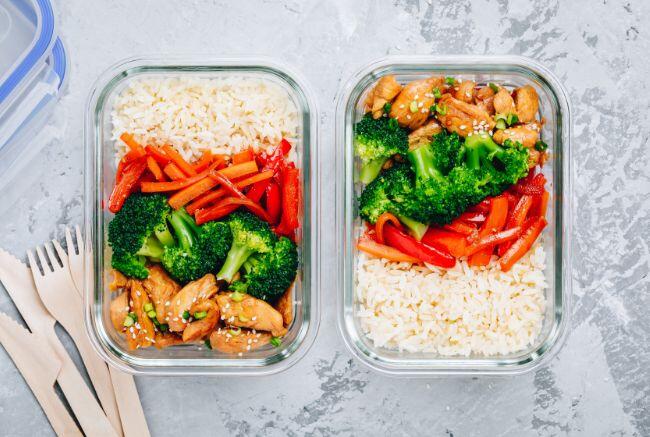For many clients on a health and fitness journey, protein is the most commonly missed macronutrient — and yet, it's one of the most important. Whether your goal is fat loss, muscle gain, or simply feeling stronger and more energised, consistently hitting your daily protein target can make a huge difference in your results.
Why Protein is So Important:
• Muscle Repair & Growth: Every time you train, your body breaks down muscle. Protein helps rebuild it stronger.
• Keeps You Full: High-protein meals help control hunger and reduce snacking — especially helpful during fat loss phases.
• Supports Metabolism: Protein requires more energy to digest, so you burn more calories eating it.
• Immune & Hormone Support: Protein is essential for repairing cells, producing enzymes, and supporting immunity.
Why It’s So Hard to Hit Protein Goals? Even with the best intentions, most people:
• Eat too many carbs or fats, not enough protein
• Skip protein-rich breakfasts
• Rely too heavily on snacks or processed foods
• Avoid meat/dairy without replacing them with adequate plant-based protein
How Much Do You Need?
While needs vary by individual, most clients benefit from 1.6–2.2g of protein per kg of body weight (especially when training regularly).
For example:
If you weigh 70kg → aim for 112g–154g per day
Easy Ways to Boost Protein — Even for Vegetarians & Vegans
Daily Habits:
• Include protein in every meal — don’t save it all for dinner!
• Start your day with a high-protein breakfast (eggs, Greek yogurt, oats + protein, tofu scramble)
• Batch prep your protein (e.g., marinate tofu, cook lentils, boil eggs)
Vegetarian Protein Sources (per serve):
• Greek yogurt (low-fat or lactose-free) – ~17g per cup
• Cottage cheese – ~14g per ½ cup
• Eggs – 6g per egg
• Tofu/tempeh – ~10–20g per 100g
• Lentils, chickpeas, beans – ~8–10g per cup
• Protein-fortified plant milks – 8g per cup
• Protein powder (vegan blends) – 20–25g per scoop
• Quinoa – 8g per cup
• Chia seeds/hemp seeds – 5g per tbsp
Smart Meal Swaps:
• Add tofu, edamame or beans to stir-fries and salads
• Make chickpea or lentil pasta instead of wheat
• Use high-protein wraps or quinoa as your carb base
• Add a scoop of plant protein to oats, smoothies, or yogurt bowls
Final Takeaway:
Protein might be the hardest macro to get right — but once you do, the impact on your training, energy, and results is huge. Whether you eat meat, are vegetarian, or completely plant-based, there are plenty of ways to build high-protein meals with simple swaps and a little planning

